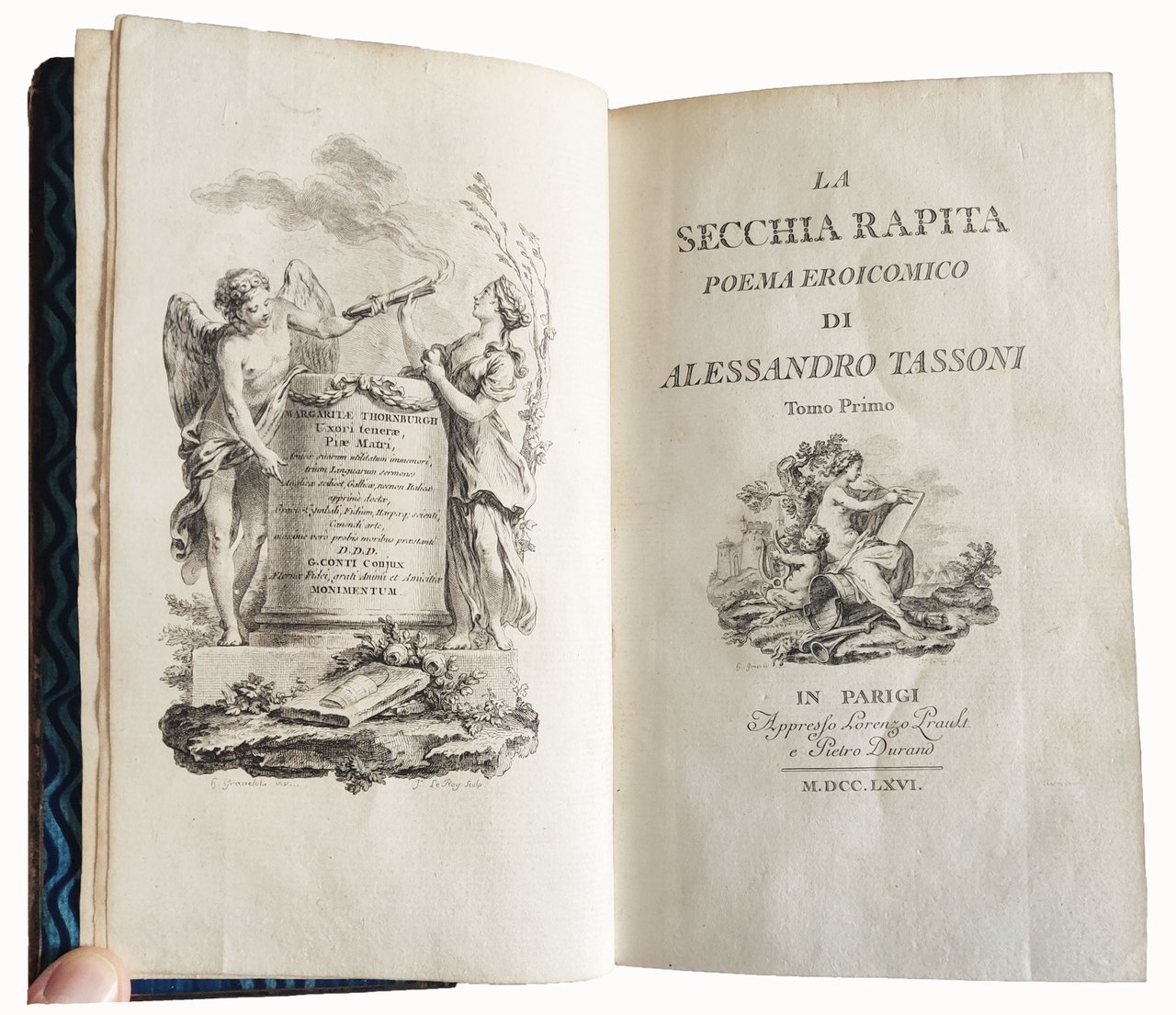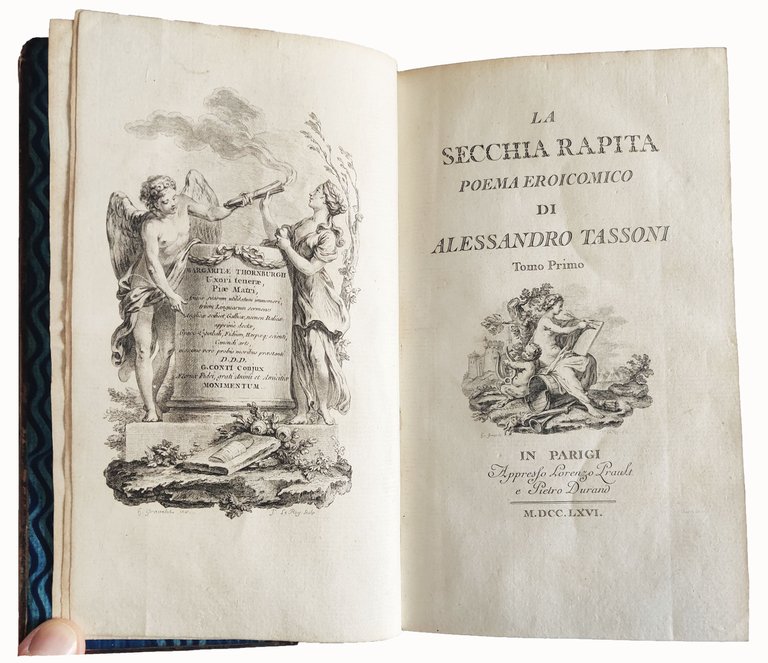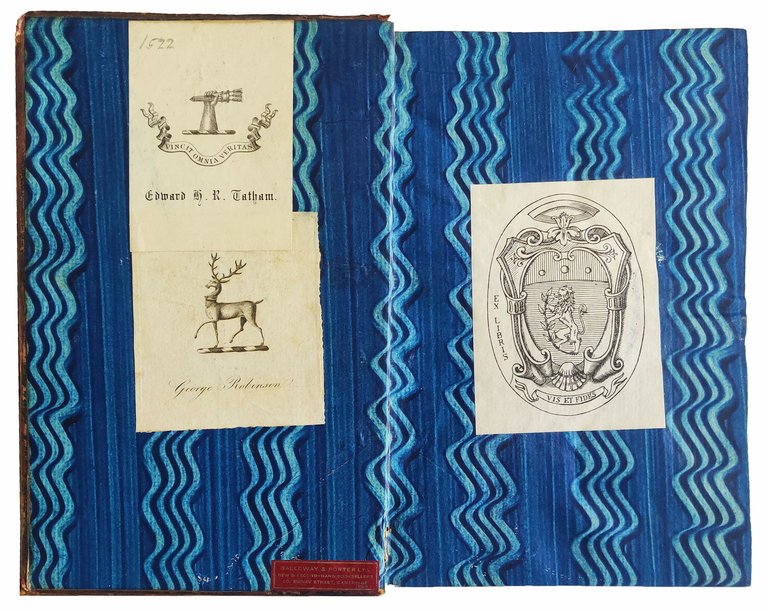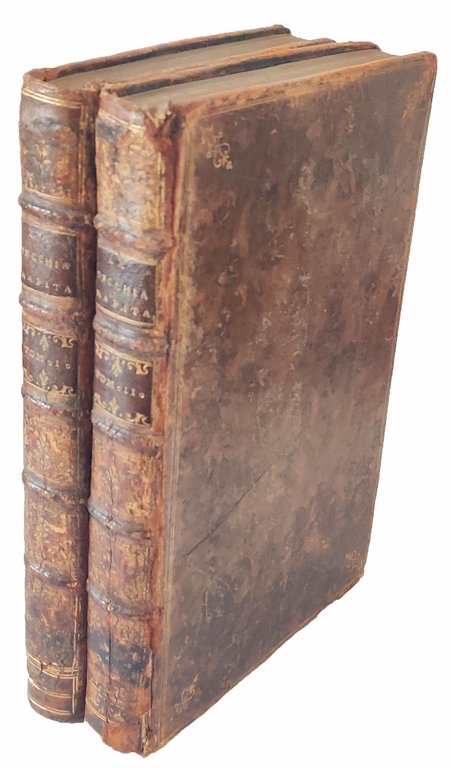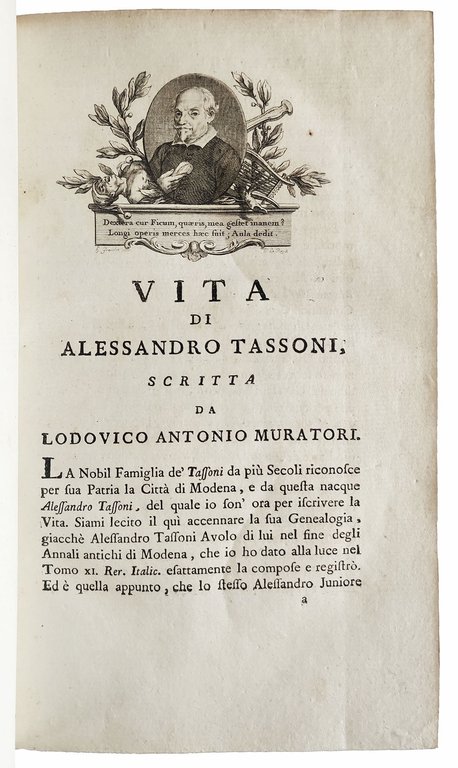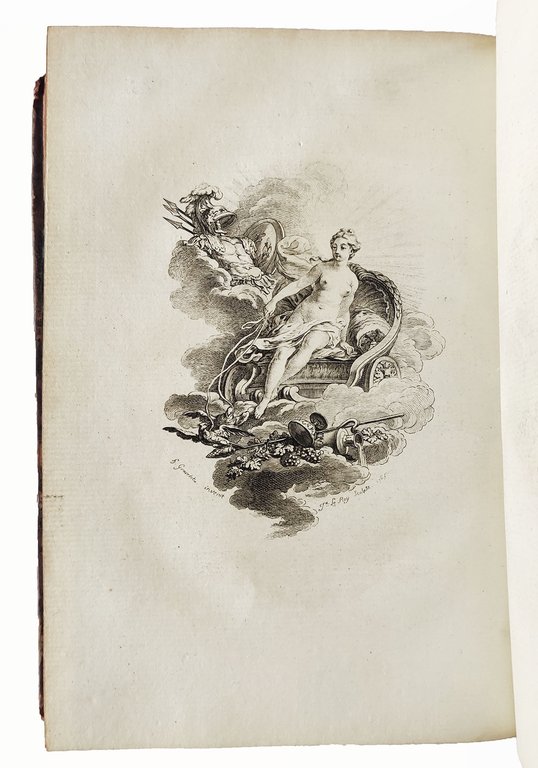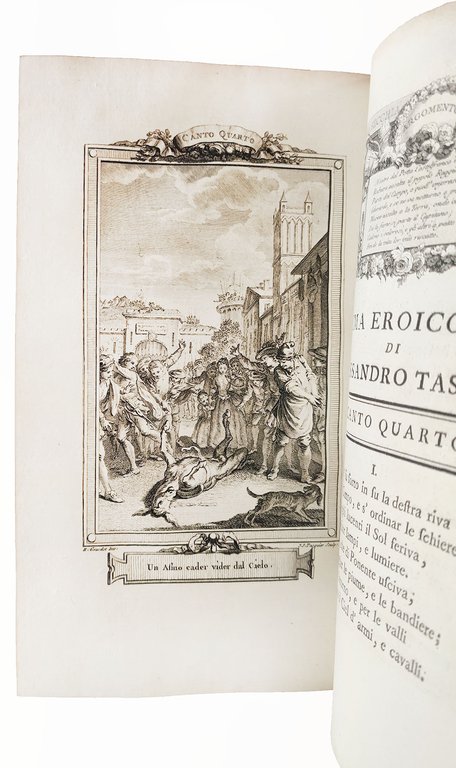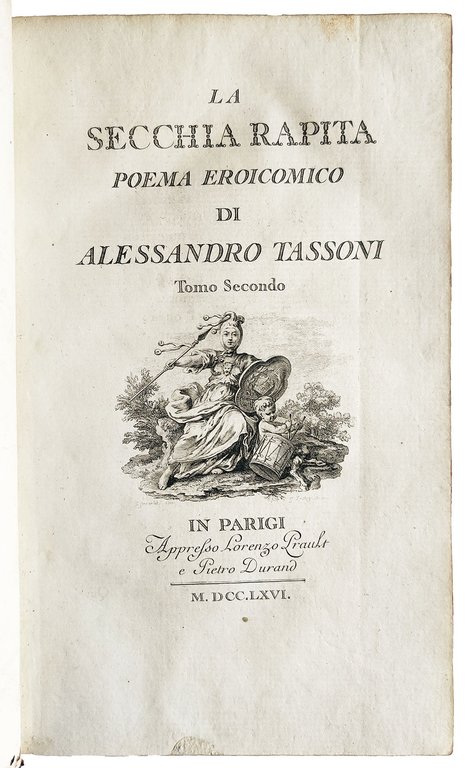La secchia rapita. Poema eroicomico
La secchia rapita. Poema eroicomico | Libri antichi e moderni | TASSONI, Alessandro (1565-1635)
La secchia rapita. Poema eroicomico
La secchia rapita. Poema eroicomico | Libri antichi e moderni | TASSONI, Alessandro (1565-1635)
Metodi di Pagamento
- PayPal
- Carta di Credito
- Bonifico Bancario
- Pubblica amministrazione
- Carta del Docente
Dettagli
- Anno di pubblicazione
- 1766
- Luogo di stampa
- Paris
- Autore
- TASSONI, Alessandro (1565-1635)
- Editori
- Laurent Prault and Pierre Durand
- Soggetto
- settecento
- Stato di conservazione
- Buono
- Lingue
- Italiano
- Legatura
- Rilegato
- Condizioni
- Usato
Descrizione
Two volumes, 8vo (228x136 mm). CVIII, 128 pp. [5] etched plates; 239, [1] pp. [8] etched plates. Collation: a-f8 g6 A-H8; A-P8. Etched allegorical frontispiece in the first volume, vignettes on the title pages. The 12 plates and the numerous head- and tail-pieces are drawn by Hubert François Gravelot and etched by some of the greatest Parisian illustrators of the time: Jacques Jean Pasquier, Jean François Rousseau, Clement Pierre Marillier, Jacques Le Roy, Jean-Baptiste Huet, François Denis Née, Antoine-Jean Duclos, and Jean-Baptiste Simonet. At l. a1 of the first volume, with a small medallion portrait of Tassoni, starts the Vita di Alessandro Tassoni scritta da Lodovico Antonio Muratori; at l. f5 begins Pierre Perrault's (1611-1680) Riflessioni di Pietro Perrault sopra il poema della Secchia rapita. With the errata corrige at the final leaf of the second volume, which is often missing. 18th-century marbled paneled calf with gilt title on a lettering piece on the spine, spine with nerves, gilt edges (binding rubbed and worn, hinges partly cracked, flyleaves slightly browned, at the front flyleaves of the first volume small worm track at the bottom). At the front paste-down of both volumes: ex libris of George Robinson (1736-1801, an English bookseller and publisher working in London), Edward K.R. Tatham (1749-1834, an English college head, clergyman and controversialist, rector of Lincoln College in Oxford from 1792) and a third, unidentified armorial one with the motto ‘vis et fides'. In the first volume there are also two small bookseller labels: Gallway & Porter (Cambridge) in the front paste-down and R. A. Everett (New Oxford) in the back paste-down. A very good and fresh copy.
Beautifully illustrated 18th-century edition of the most important successful poems of the heroicomical genre in Italian literature. La Secchia Rapita was composed between 1614-15 in 10 cantos in octave rhyme and in 1618 it was enriched with 2 additional cantos. It came out in first edition in Paris towards the end of 1621, but with the date 1622, and the title: La Secchia, poema eroicomico d'Androvinci Melisone (Paris, Tussan du Bray). Then it underwent revisions by the Congregation of the Index and was republished in two different issues in Ronciglione (Rome) in 1624, with the title: La Secchia Rapita. Finally, it had a definitive edition, edited by Tassoni, in Venice in 1630.
La Secchia rapita is a large poem that tells the war broken out between Bologna and Modena as a consequence of the theft made by the Modenese, called ‘Gemignani' after the name of their patron Saint, of a moth-eaten bucket belonging to the ‘Petroniani', i.e. the Bolognesi. The entire Homer's Olympus takes part in the war, siding with one town or the other. Ridiculous figures like the bully Count of Culagna and the boastful womanizer Cavalier Titta complete the satirical poem, which mocks the secular and often futile rivalries between the Italian cities. Although the action takes place in the 13th-century, the references to contemporaneity are numerous and expressed with wit and vivacity.
Alessandro Tassoni was born in Modena in 1565 into a noble family but was orphaned at an early age. He studied in Bologna, Ferrara and Pisa, then in 1599 he entered the service of Cardinal Ascanio Colonna. Between 1600 and 1603 Tassoni followed him in Spain. Back to Italy, he mostly lived in Rome as an ambassador of Charles Emmanuel I of Savoy. In 1618 he was called to Turin to carry out the duties of secretary. In 1621 he retired from the post and from the court life, but in 1626 he entered the service of Cardinal Ludovisi. From 1632 to his death, Tassoni lived at the court of Francis I, duke of Modena.
Italian Union Catalogue, LO1E\011947; OCLC, 13600340; Système Universitaire de Documentation, 100324355; Brunet, V, 676; Choix, 18786; P. Puliatti, Bibliografia di Alessandro Tassoni, Florence, 1959, pp. 244-250, no. 136; Cohen-Ricci, 980-81 (“Jolie édition bien illustrée”); Gamba, 2097
